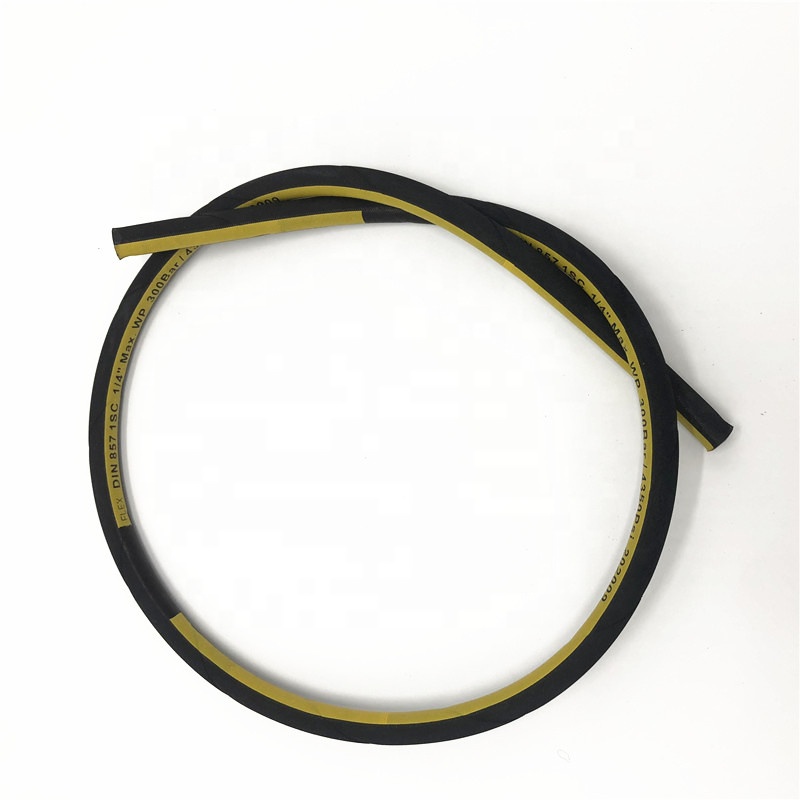335345435
Nov . 30, 2024 11:10 Back to list
PTFE Teflon Hose Manufacturing Company Overview and Key Features
The Essential Role of PTFE Teflon Hoses in Various Industries
Polytetrafluoroethylene (PTFE), commonly known as Teflon, is a synthetic fluoropolymer that has earned a reputation for its exceptional resistance to heat, corrosion, and various chemicals. Among its many applications, PTFE Teflon hoses have become indispensable in numerous industries due to their unique properties. Their manufacturing involves intricate processes in specialized factories that uphold high-quality standards, ensuring their reliability and performance in diverse environments.
Manufacturing Process of PTFE Teflon Hoses
The production of PTFE Teflon hoses begins with the refinement of PTFE resin, which is known for its high purity and thermal stability. Factories focus on creating hoses that can withstand extreme temperatures ranging from -70°C to +260°C while maintaining their structural integrity. The process involves extrusion, where the PTFE resin is heated and forced through a die to achieve the desired hose diameter and wall thickness.
Once the hose is extruded, it undergoes a sintering process, where it is heated to a point just below its melting temperature. This step is crucial as it allows the PTFE particles to fuse, providing the hose with its characteristic strength and durability. Factories often employ advanced techniques to ensure uniformity and precision in the production process.
Performance Characteristics of PTFE Teflon Hoses
One of the primary advantages of PTFE Teflon hoses is their chemical resistance. They can effectively transport a wide range of aggressive chemicals, including acids, alkalis, and solvents, making them ideal for industries such as pharmaceuticals, food processing, and chemical manufacturing. Unlike rubber or silicone hoses, PTFE hoses do not suffer from degradation over time when exposed to harsh substances, thereby reducing the risk of contamination and ensuring product quality.
ptfe teflon hose factory

Additionally, PTFE Teflon hoses are non-stick, allowing for easy cleaning and maintenance. This property is especially beneficial in applications where hygiene is paramount, such as in medical and food-processing environments. Their low friction coefficient contributes to efficient fluid flow, which can enhance system performance and reduce energy costs.
Applications Across Industries
PTFE Teflon hoses find applications across various sectors. In the aerospace industry, they are used for fuel and hydraulic lines, where reliability and safety are critical. The automotive sector also utilizes PTFE hoses for high-performance applications, such as brake lines, where high temperature and pressure resistance are required.
In the pharmaceutical and biotechnology industries, these hoses are crucial for transferring sensitive fluids and ensuring sterile environments. Their biocompatibility and resistance to sterilization methods make them suitable for these applications.
Furthermore, in the food and beverage sector, PTFE Teflon hoses play a vital role in the production and transport of consumables. They help maintain the purity of ingredients and protect against contamination, complying with stringent food safety regulations.
Conclusion
In summary, PTFE Teflon hoses represent a pinnacle of engineering and material science, demonstrating superior performance across multiple industries. Factories specializing in these hoses ensure that they meet the highest standards of quality and safety, making them essential components in systems where temperature, chemical exposure, and hygiene are of utmost importance. As industries continue to evolve and face new challenges, the demand for advanced materials like PTFE will undoubtedly grow, reinforcing the relevance of Teflon hoses in the modern industrial landscape. Their versatility and resilience make them a smart investment for businesses aiming for efficiency and reliability in their operations.
-
SAE 100 R17 Black Smooth Cover Hydraulic Hose
NewsMar.07,2025
-
SAE 100 R17 Black Smooth Cover Hydraulic Hose
NewsMar.07,2025
-
SAE 100 R17 Black Smooth Cover Hydraulic Hose
NewsMar.07,2025
-
SAE 100 R17 Black Smooth Cover Hydraulic Hose
NewsMar.07,2025
-
SAE 100 R17 Black Smooth Cover Hydraulic Hose
NewsMar.07,2025
-
steel wire braided hydraulic hose
NewsMar.07,2025



